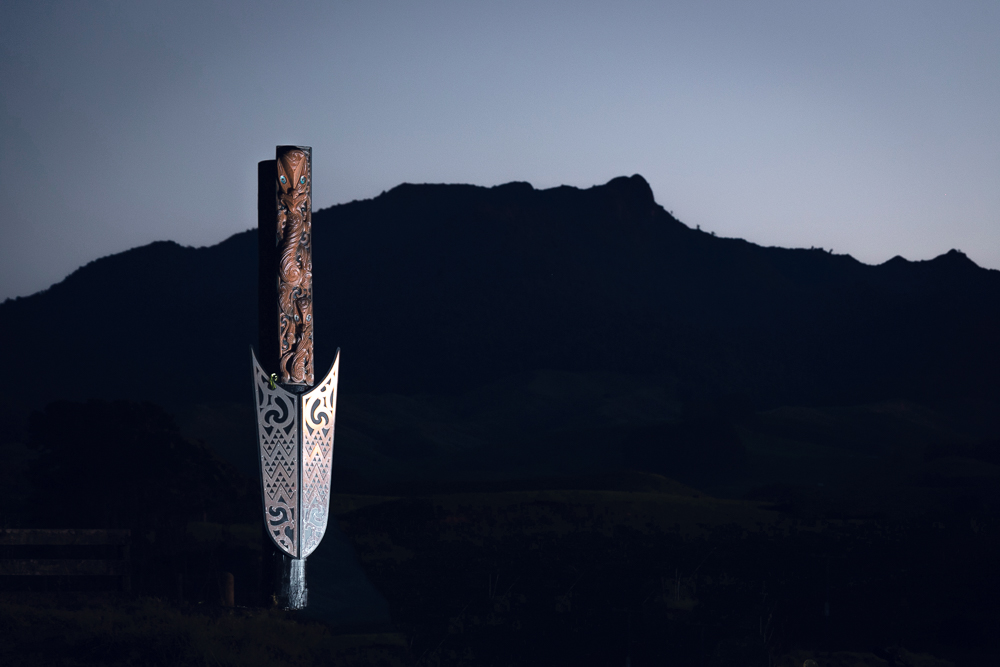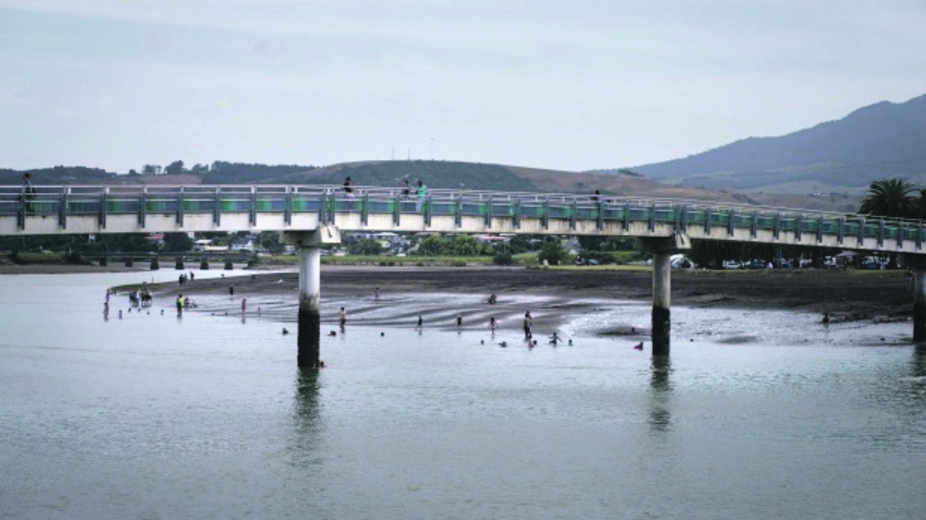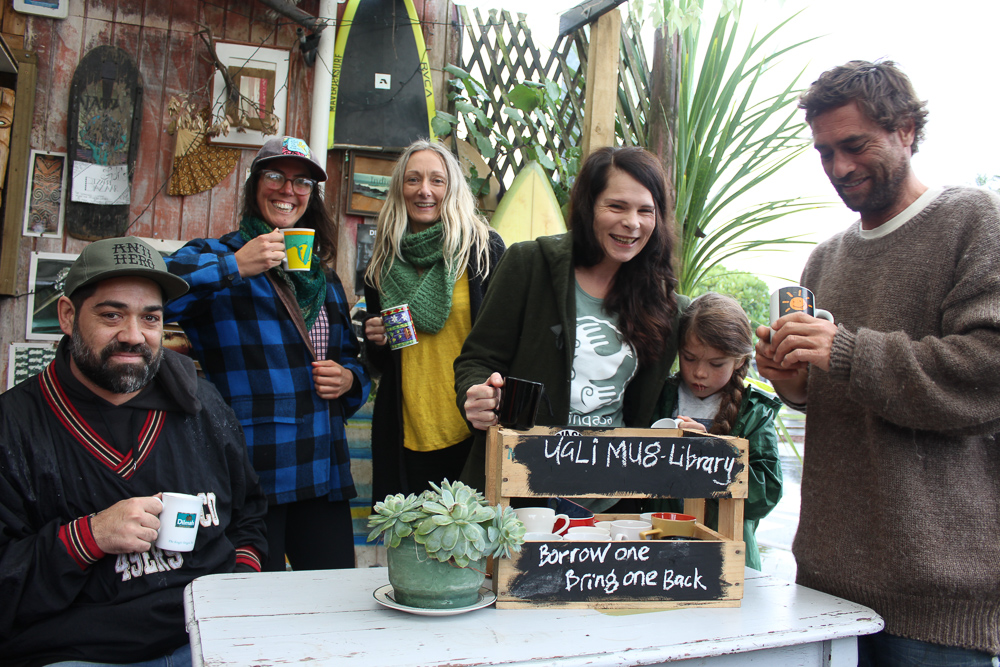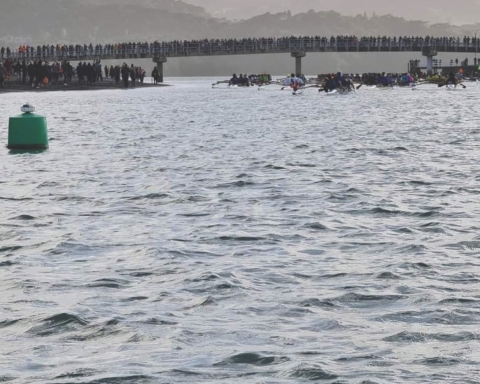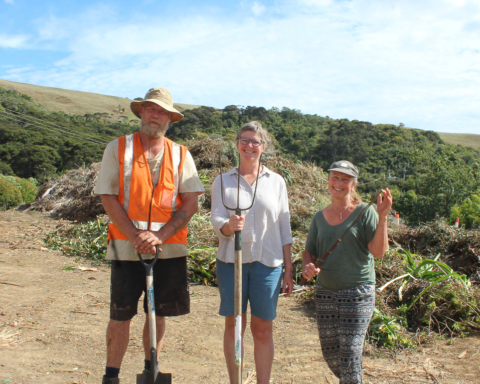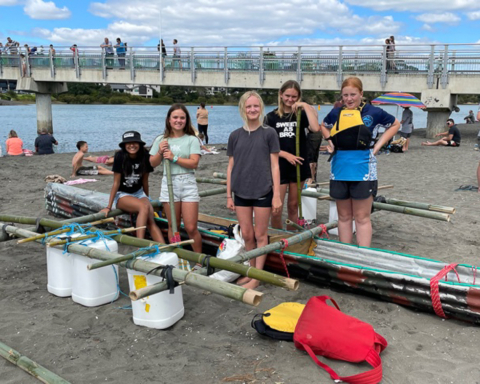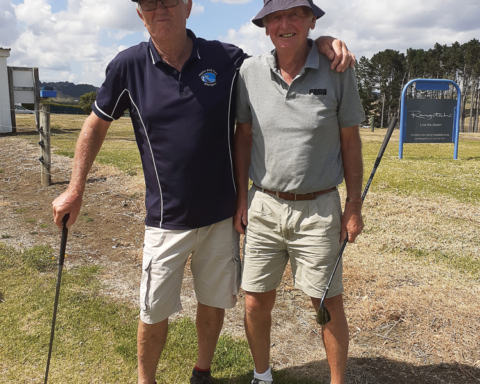Many will have noticed the stunning sculpture on Wainui Rd which was unveiled from its blue tarpaulin covering recently.
Carved by local carvers Kawharu Greensill and Kelvin Le Lievre, the pou represents Te Atai o Rongo, the taniwha protector of local Tainui tribes, whose lair was disrupted when the then Raglan County Council built an oxidation pond on the wāhi tapu site in 1977.
One of the initiators of the sculpture, Kawharu’s mother Angeline Greensill says, shortly after the wastewater ponds became operational, several drownings occurred off the west coast.
The taniwha’s role in that was debated in the Waikato Times, which led to 12 tohunga (priests) and other interested people gathering on the Te Kopua urupa in 1978 to carry out karakia (prayer) to restore the balance in the area.
“Before the karakia could take place 17 people from Ngā Hau e Whā were arrested, an action that lead to the Raglan Golf course saga. Five years later, the golf club was relocated and Te Kopua land which had been taken for airstrips during World War II was finally givenback to its rightful owners,” she says.
“The sculpture is mainly to acknowledge a sacred space, tells a story about te Atai o Rongo and issues a challenge to the council and local community to look seriously at other options for Raglan’s wastewater siting and discharge,” Kawharu says.
“The sewage ponds should not have been built here. I don’t think there’s anyone living here who wants to swim in the moana with treated sewage effluent.”
Council was directed by the Environment Court in 2004 to remove the pond and the area was blessed and then planted by the Brown brothers, Tainui hapu and community workers; Te Atai o Rongo was then able to reclaim this space as his domain.
Kawharu reckons the council seems to be doing things differently and the pou they paid for is a reminder to them to not continue making the same mistakes and to future-proof Raglan’s wastewater treatment.
Raglan’s wastewater treatment plant discharge consent expires in February 2020 and council is considering membrane treatment, land treatment, reuse options or to pump treated wastewater to new coastal discharge outfall.
During the early 1970s, Kawharu’s grandparents Eva and Tex Rickard were strong opponents to building the current sewage ponds at Te-Rua-O-Te-Ata, the domain of Te Atai o Rongo.
Their protests were ignored and mention of the significance of the taniwha was even scoffed at by Raglan County councillors at the time.
However, their concerns were not just about their taniwha, they also raised objections to the pond and outflow pipes close location to sacred burial sites, the local marae and local Māori homes as well as fears about the outflow affecting traditional shellfish beds and fisheries.
Te Atai o Rongo, is an ancestor of the local iwi who started life in human form but was murdered by his brother-in-law. His pregnant wife fled to Kawhia and gave birth to a son in the meantime Te Atai o Rongo took on the form of a taniwha and became a kaitiaki (guardian) of the local iwi.
“When I was a kid, we were told to call out to Te Atai o Rongo if we got into trouble in the water and he would come to help,” Kawharu says.
Angeline says, around a dozen young men were blessed in the river and put under the protection of the taniwha before heading off to the second world war. They all returned.
Te Atai o Rongo is represented as a taniwha at the top of the pou. His son Kaihu is below. He is facing the river, his accessway to and from the sea.
The stainless steel design represents the ripples that follow te Atai o Rongo when he travels.
It is also in the shape of an arero (tongue) to issue the challenge to council and the community to remove wastewater from the moana.
Janine Jackson
